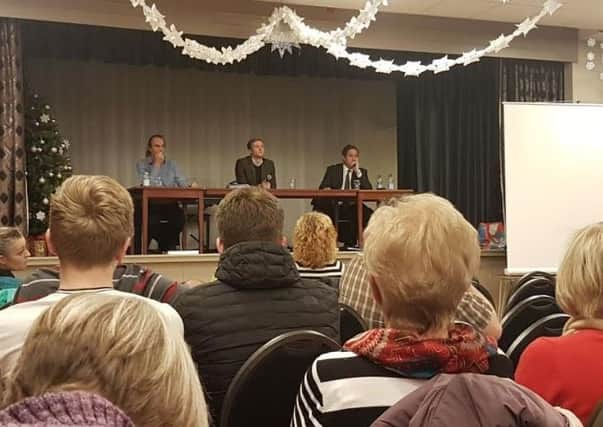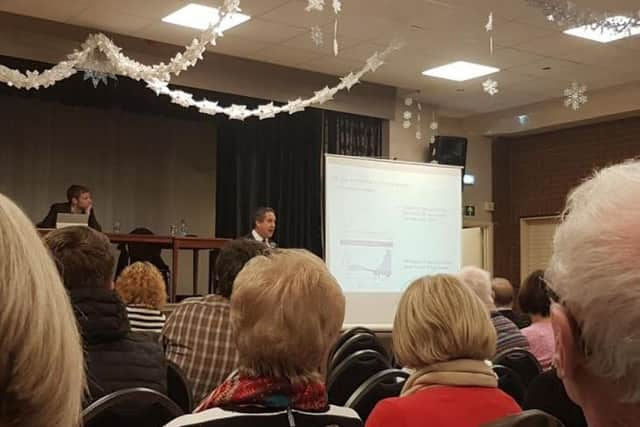VIDEO AND PICTURES: Residents voice opposition to fracking at public debate


The packed meeting at Eckington Civic Centre on Thursday night was attended by more than 150 locals as chairman of the Eckington Against Fracking group, David Kesteven, went head-to-head with Ineos operations director, Tom Pickering.
Chaired by MP for North East Derbyshire, Lee Rowley, the debate included a 10-minute ‘pitch’ from each candidate, 11 submitted questions as well more from the floor.
Advertisement
Hide AdAdvertisement
Hide AdAt the end of the 90-minute debate, people were asked to vote whether ‘fracking has a part to play in England’s energy mix’, with the large majority of residents saying it did not.
Opening the debate, Conservative MP Mr Rowley reinforced his own view on the application for Bramley Moor Lane in Marsh Lane, near Eckington, saying: “I hope it goes away and I don’t want it to happen.”
Mr Pickering was first to speak and he told the audience the UK’s gas supply was in decline and that we were relying too heavily on importing gas from other countries. He also said there was a potential for £33billion of investment and 64,000 new jobs. He added that he would like to set up a community liaison group.
Responding, Mr Kesteven said: “We can get to a clean mix of energy without shale. We have got to take climate change seriously and that means keeping fossil fuels in the ground.”
Advertisement
Hide AdAdvertisement
Hide AdThe questions included topics such as how can fracking be safe if it is banned in other countries, Ineos injunctions, creation of local jobs, safeguarding and penalties, how it is regulated and what profit could be made.


Addressing the questions, Mr Pickering said Ineos’ injunctions were sought to stop people climbing on top of lorries, that no current staff on the seismic teams were ‘local’ but that they would look to employ locally and that the community would benefit by three per cent of revenues. He would not be drawn on how much profit they would stand to make from one single well.
Mr Pickering added that within a 100sq kilometre area, there would be 15 visible sites of surface and each of those sites would have between eight and 12 wells.
Mr Kesteven responded: “That’s 400 wells in a six mile square. We have not got the infrastructure to support a gas infrastructure and we don’t even need - that’s the killer. We will not get cheap energy.”